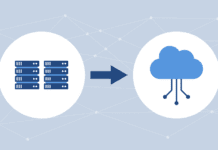HP (NYSE: HPQ) will soon offer new disk-based backup systems with data de-duplicationtechnology, the latest storage vendor to move into the fast-growing de-dupe market.
HP won’t officially announce the products for another week or two, but the company displayed the offerings this week at the HP Technology Forum in Las Vegas.
HP says its de-dupe technology can increase disk utilization by as much as 50 times. The technology has been growing in popularity because of its ability to help storage users do more with less. Data Domain (NASDAQ: DDUP), for one, has been more than doubling its revenues thanks to de-dupe.
Enterprise Strategy Group analyst Lauren Whitehouse said an ESG survey last fall found that just over half of respondents were using or planning on using file-level de-duplication technology, while only a third had no plans to use the technology.
“The vendors with de-dupe as a feature of their backup or disk target system have done a good job of educating the market on the benefits of the technology, so I believe that interest is increasing,” said Whitehouse.
HP will offer two ways for customers to get into de-dupe, one aimed at SMBs and branch offices and the other at enterprises. For SMB customers, HP will make the technology standard on its HP StorageWorks D2D Backup Systems (D2D). For large enterprises, HP will offer de-duplication with the HP StorageWorks Virtual Library Systems (VLS).
David Rogers, product marketing manager for disk-based data protection products for HP StorageWorks, said HP developed its SMB de-dupe technology in-house, with help from HP Labs, while the enterprise version has been OEMed from Sepaton.
The D2D 2500 and 4000 systems offer what HP calls “Dynamic” de-duplication, an in-line de-dupe approach designed to minimize hardware costs, with pricing starting at $6499. They will be available immediately. The systems emulate up to 16 LTO tape autoloaders or libraries and consolidate backup of as many as 16 servers onto a single network connected device.
The enterprise version offers “Accelerated” de-duplication, a post-processing approach that emphasizes speed. VLS emulates multiple tape libraries or drives for data centers to back up large amounts of data with fast restore. The VLS6000 and VLS9000 series will be available in July and the VLS6200 and VLS12000 models in September.
VLS pricing is based on capacity. The VLS12000 is $5,000 per 2TB LUNlicense. The VLS9000 is $25,000 per license, with four licenses per capacity module. And the VLS6000 is $8,750 per license, with one or two licenses per shelf depending on configuration (one license for 500GB drive shelves; two licenses for 750GB drive shelves).
HP also unveiled the HP StorageWorks RDX Removable Disk Backup Systems (RDX160 and RDX320) for small businesses to store data off-site as part of their disaster recovery plan. Pricing starts at $299 and the units are available now.





